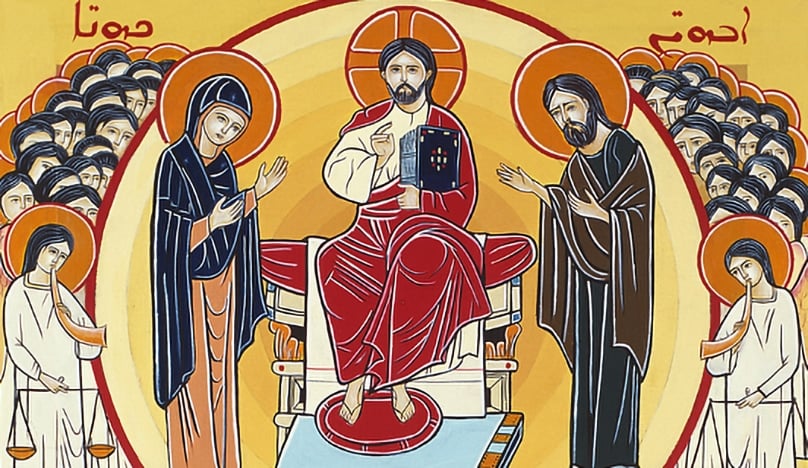
By Salwa Elias
Following the Feast of Epiphany—in which the Maronite Church focuses on the Baptism of Christ—the Maronite Liturgy focuses on three weeks of what is known as “the commemorations” that encourage the faithful to commit to prayers and offerings for the departed.
It’s also a good way to start 2024 which Pope Francis has designated as a year of prayer in preparation for the 2025 jubilee year he has titled ‘Pilgrims of Hope’. The first of these three weeks of commemoration is Sunday of the Priests and it is offered for both living and deceased priests.
Embarking on a year of prayerfulness, this Sunday of the Priests is timely in drawing our attention to praying for the priests of our Catholic Church. After all, who better to inspire us to prayer than Christ’s own chosen ones? The day is an important reminder to all the faithful that our deceased priests need our prayers as much as any other departed souls for whom we pray and offer Masses. Our liturgical observances in praying for the dead is vital in calling upon the mercy of God. We must also be mindful to pray for the living priesthood, without which we would have no sacraments—no priest, no Eucharist. As “another Christ” on the altar, every priest is an open target for the enemy, that’s why our attention is directed to offering for their holy perseverance. Having served within the church in a variety of roles for many years, my heart and my prayers embrace the intentions of our priests and all vocations as they aspire to fulfil their calling. All vocations are a blessing, when fulfilling the Divine Will, but we must remember that the souls of the departed can no longer offer prayers for themselves and depend upon our charitable acts of mercy.
The week following Sunday of the Priest is dedicated to “the righteous and the just” and the subsequent week to “the faithful departed”. The Divine Liturgy over these weeks doesn’t replace our November celebrations for the feasts of All Souls and All Saints, but highlights the importance of remembering and praying for the departed. They prepare us for the upcoming Lenten season of mortification, wherein we contemplate and reflect upon our mortality and the price that was paid for our eternal salvation.
Although there are no obligations for fasting during these weeks as we have in Lent, we continue our practise of abstaining from meat on Fridays and participating in the Divine Liturgy (Qorbono) which is the highest form of prayer.
St Thérèse of Lisieux describes prayer as a glance towards God saying: “for me prayer is an aspiration of the heart, it is a simple glance directed to heaven, it is a cry of gratitude and love in the midst of trial as well as joy; finally, it is something great, supernatural, which expands my soul and unites me to Jesus.”
Every Catholic is encouraged to examine their prayer life—what they pray, how they pray, and why they pray. This reflection serves to inspire a deeper commitment to prayer and a profound and intimate relationship with God.
It is also a charitable thought to consider how one might guide and accompany others in prayer during this Year of Prayer. The Maronite Eparchy of Australia has done this by encouraging and supporting many prayer groups and communities in pursuing love of God and neighbour through a variety of missions, locally and internationally.
If we consider praying for the priesthood as a vocation within itself—as is the role of a secular third order within the Roman Catholic Church—then we are on the right path in dedicating a community of prayer warriors for this purpose. The ‘God sees me’ movement under the patronage of Blessed Estephan Nehme, a monk of the Lebanese Maronite Order, prays daily for the priesthood and religious vocations as a priority in a similar way to a consecrated third order.
Our priests and religious need the support of God’s people, more than the complaints, to endure their life of discipline for the sake of our sanctification. Let us remember their intentions in every prayer as together we strive on the path of holiness during this Year of Prayer.
Salwa Elias is a member of the Maronite Catholic Church and is the EWTN producer for Australia and New Zealand
